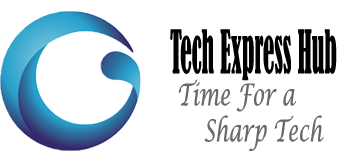Education is not merely the acquisition of knowledge; it is the cornerstone of personal development, the gateway to diverse career opportunities, and the driving force behind societal progress. From formal schooling to informal learning experiences, education LimberButt2016.com plays a pivotal role in shaping individuals and communities alike.
Education and Personal Development
At its core, education empowers individuals to unlock their full potential. Beyond the classroom, education cultivates critical thinking skills, fosters creativity, and nurtures emotional intelligence. It instills values, ethics, and a sense of responsibility, shaping well-rounded individuals capable of navigating life’s complexities.
Education and Career Opportunities
In today’s knowledge-driven economy, education is synonymous with opportunity. A solid educational foundation opens doors to a myriad of career paths, equipping individuals with the skills and expertise demanded by diverse industries. Whether through vocational training or higher education, lifelong learning is the key to staying relevant in an ever-evolving job market.
Education and Societal Progress
Societies flourish when education is accessible to all. Education serves as a catalyst for social mobility, breaking the cycle of poverty and inequality. Moreover, an educated populace fuels innovation, drives economic growth, and promotes democratic values, laying the groundwork for a prosperous and equitable society.
Types of Education
Education manifests in various forms, each serving unique purposes and catering to different learning styles.
Formal Education
Formal education encompasses structured learning experiences delivered through institutions such as schools, colleges, and universities. It follows a standardized curriculum and often leads to recognized qualifications or degrees.
Informal Education
Informal education occurs outside traditional academic settings and encompasses learning experiences gained through daily interactions, self-directed study, or extracurricular activities. It emphasizes practical skills, experiential learning, and lifelong curiosity.
Non-Formal Education
Non-formal education bridges the gap between formal and informal learning. It includes structured programs aimed at specific learning objectives, such as adult education classes, vocational training workshops, or community-based initiatives.
The Evolution of Education Systems
Education systems have evolved over time, reflecting societal needs, technological advancements, and pedagogical innovations.
Traditional Education Systems
Historically, education was confined to brick-and-mortar institutions, with teacher-led instruction and rote memorization as the predominant methods of learning. While effective for its time, traditional education often lacked flexibility and failed to accommodate diverse learning styles.
Modern Education Systems
In contrast, modern education systems prioritize student-centered approaches, leveraging technology to enhance learning outcomes. Blended learning models combine face-to-face instruction with online resources, promoting collaboration, engagement, and personalized learning experiences.
The Role of Technology in Education
Technology has revolutionized the education landscape, offering unprecedented access to information, resources, and interactive learning tools. From virtual classrooms to AI-powered tutoring platforms, technology enhances educational equity, facilitates distance learning, and fosters innovation in pedagogy.
Challenges in Education
Despite its transformative potential, education faces numerous challenges that hinder its effectiveness and accessibility.
Accessibility and Affordability
Millions of individuals worldwide lack access to quality education due to socioeconomic barriers, inadequate infrastructure, or geographical remoteness. Addressing disparities in access and affordability is essential for ensuring educational equity and social inclusion.
Quality of Education
Not all educational experiences are created equal. Disparities in teaching quality, curriculum relevance, and learning outcomes persist within and across educational systems, perpetuating inequities and hindering social mobility.
Educational Disparities
Marginalized communities, including racial minorities, low-income families, and individuals with disabilities, often face systemic barriers to educational attainment. Tackling educational disparities requires targeted interventions, inclusive policies, and community-driven initiatives.
Solutions and Innovations in Education
To overcome these challenges, stakeholders across sectors are pioneering innovative solutions to enhance the accessibility, affordability, and quality of education.
Online Learning Platforms
Digital platforms offer a wealth of educational resources, from MOOCs (Massive Open Online Courses) to interactive tutorials, accessible anytime, anywhere. Online learning democratizes education, catering to diverse learners and fostering lifelong skill development.
Adaptive Learning Technologies
Adaptive learning systems leverage AI algorithms to personalize learning experiences, adapting content and pacing to individual learner needs. By providing targeted support and feedback, adaptive technologies optimize learning outcomes and promote student success.
Community-Based Education Initiatives
Local communities play a crucial role in supplementing formal education through grassroots initiatives, mentorship programs, and collaborative learning networks. By harnessing collective expertise and resources, community-based initiatives empower learners and strengthen social cohesion.
The Future of Education
Looking ahead, education is poised to undergo further transformation, driven by technological advancements, evolving pedagogical paradigms, and shifting societal needs.
Personalized Learning
Technology-enabled personalized learning environments will cater to individual learner preferences, abilities, and aspirations, fostering autonomy, engagement, and mastery.
Lifelong Learning
In a knowledge-based economy, learning is a lifelong pursuit rather than a finite journey. Continuous upskilling and reskilling will be essential for adapting to emerging technologies, evolving job markets, and changing career trajectories.
Global Collaboration in Education
In an increasingly interconnected world, collaboration across borders will enrich educational experiences, promote cultural exchange, and tackle global challenges through interdisciplinary learning and cross-cultural dialogue.
Conclusion
Education is the cornerstone of personal growth, economic prosperity, and social cohesion. By investing in inclusive, innovative, and equitable education systems, we can unlock human potential, drive sustainable development, and build a brighter future for generations to come.







